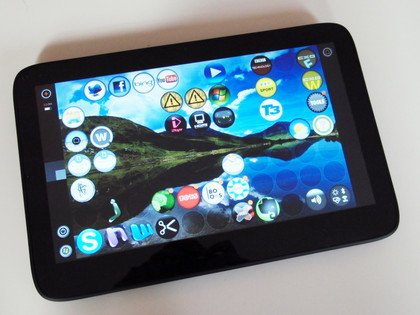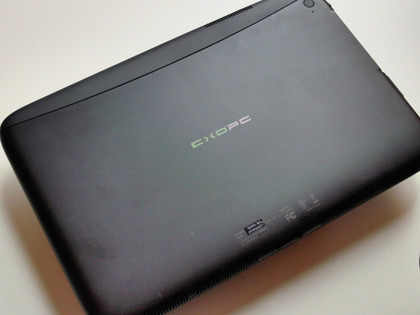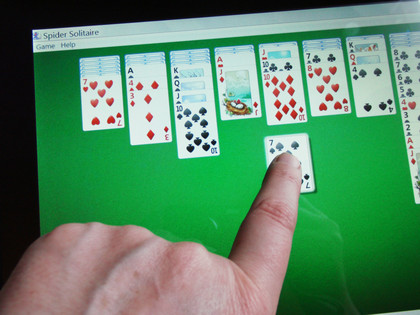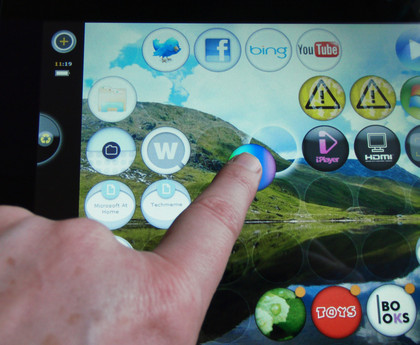TechRadar Verdict
Pros
- +
Good build quality and slim design
- +
Full Windows 7 for compatibility
- +
Good specification
- +
Connectivity
Cons
- -
ExoPC user interface needs work
- -
Battery life poor compared to Android or iPad
- -
Poor viewing angle
- -
No mainstream distribution yet
Why you can trust TechRadar
For the same price as the iPad, you'll soon be able to get an 11-inch Windows 7 tablet.
The ExoPC Slate has comparable storage to the iPad (32 or 64GB) but it also has a webcam, hardware-accelerated Flash (and Silverlight), handwriting recognition, fully accessible USB ports and an SD card slot – and of course it runs any Windows application you want.
If that were enough to rival the iPad, PC manufacturers would have been outselling Apple for months. The iPad may be locked down and far less powerful than a PC, but it's also slick, lightweight and supremely usable.
For all the advantages of Windows, making a tablet PC that's cheap, portable and attractive isn't that easy.

The announcement of the iPad also produced a flurry of slate and tablet PC announcements. Despite the fact that there have been stylus-powered tablet PCs with handwriting recognition since 2003, with an increasing number of touch-enabled netbooks appearing in the last year, most of this new generation of lightweight Windows tablets without attached keyboards have taken until late 2010 to make it from announcement to availability.

They've been beaten to the market not just by the iPad but by Android tablets ranging from the fast-selling Galaxy Tab to a plethora of budget me-too devices such as the Advent Vega.
Major PC makers seem to feel that Windows isn't quite right for a device with no keyboard that's aimed at mainstream consumers rather than industrial and business users (hence the Windows Embedded entertainment tablets we've seen instead).
Sign up for breaking news, reviews, opinion, top tech deals, and more.

Some, such as Dell and Toshiba, have been rushing to capitalise on buyers' enthusiasm for Android instead. Viewsonic's disappointing dual-boot ViewPad 10 has just arrived and although Microsoft encouraged HP to announce its Slate at CES 2009, it's only now going on sale (in very limited numbers, as HP concentrates instead on forthcoming webOS tablets).
That means that although Windows 7 runs happily on a wide range of Atom netbooks, it still has to prove itself as a touch and tablet operating system. Is this the tablet to do it? Maybe.
The ExoPC Slate has taken this long to become available because it comes from a small Canadian company that has had to switch suppliers and is still negotiating for distributors in some countries (including the UK).

It's also developed its own touch user interface for launching apps; a promising approach that's still something of a work in progress (and doesn't get in the way if you want to stick with using the standard Windows 7 interface, which has some optimisations for touch.
Mary (Twitter, Google+, website) started her career at Future Publishing, saw the AOL meltdown first hand the first time around when she ran the AOL UK computing channel, and she's been a freelance tech writer for over a decade. She's used every version of Windows and Office released, and every smartphone too, but she's still looking for the perfect tablet. Yes, she really does have USB earrings.